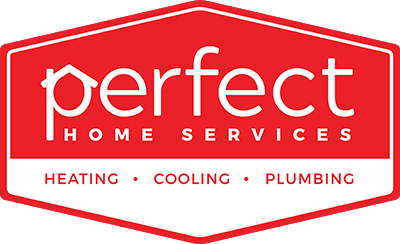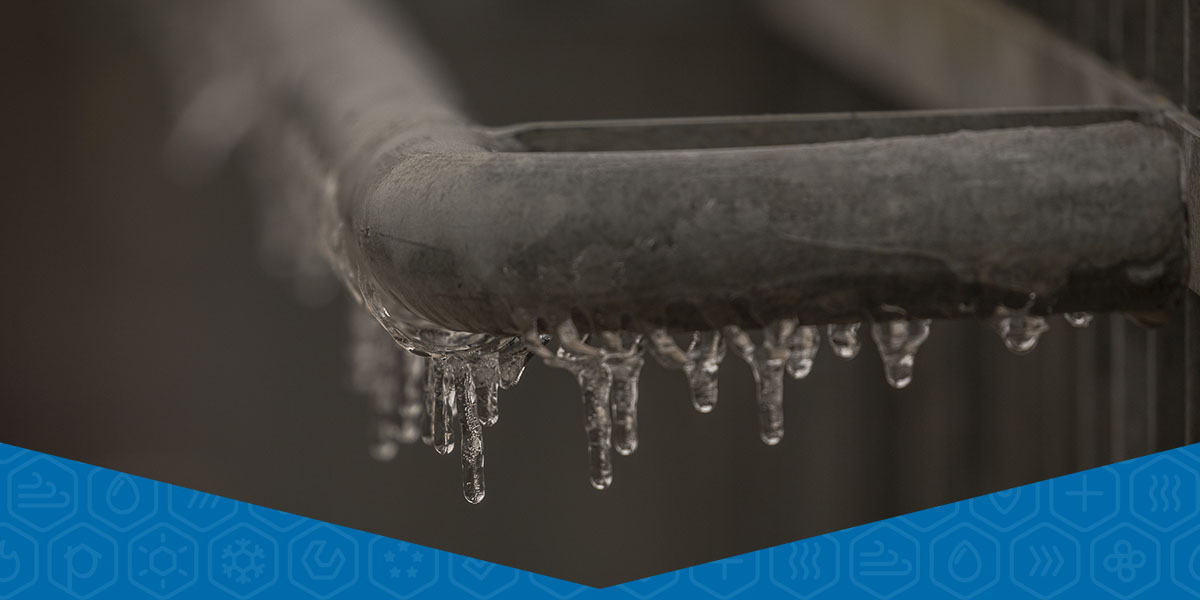
How to Prevent Pipes From Freezing
Winter presents many challenges for homeowners, especially in the Chicago area where temperatures often drop below freezing in the colder months. A common issue you may experience is freezing pipes in and outside your home. Dealing with frozen pipes isn’t only inconvenient — it can have costly consequences.
How long it takes for pipes to freeze depends on the amount of exposure to freezing temperatures. It can take hours or days to reach the freezing point, depending on whether the exposure is direct or minimal.
What happens when pipes freeze? The pipes expand and contract as water freezes and thaws. Increased pressure during expansion can cause the plumbing components to burst, especially in weak and worn areas.
Learn more about why avoiding frozen pipes is so important, and the top six ways you can prevent them from freezing.
Risks and Consequences of Frozen Pipes
The main risk that frozen pipes present is that they can burst or lead to leaks, causing structural damage to your home.
Leaks that go unnoticed can cause spikes in your water bill and slow but steady damage to your home’s foundation. Even worse, a burst pipe can result in a flooded basement and damage to your property that is expensive to repair. Another risk is mold and mildew formation in damp and dark areas like the basement. Mold grows and spreads rapidly in these conditions and can affect the health of everyone in your home.
Preventing leaks and frozen plumbing components can help mitigate these risks.
Top 6 Ways to Prevent Pipes From Freezing
The first step to prevent your plumbing from freezing is to locate the pipe network inside and outside your home. Pipes are found in interior and exterior walls, attics, crawl spaces and basements.
Avoid the need to replace your pipes by following these top six ways to prevent freezing pipes in winter.
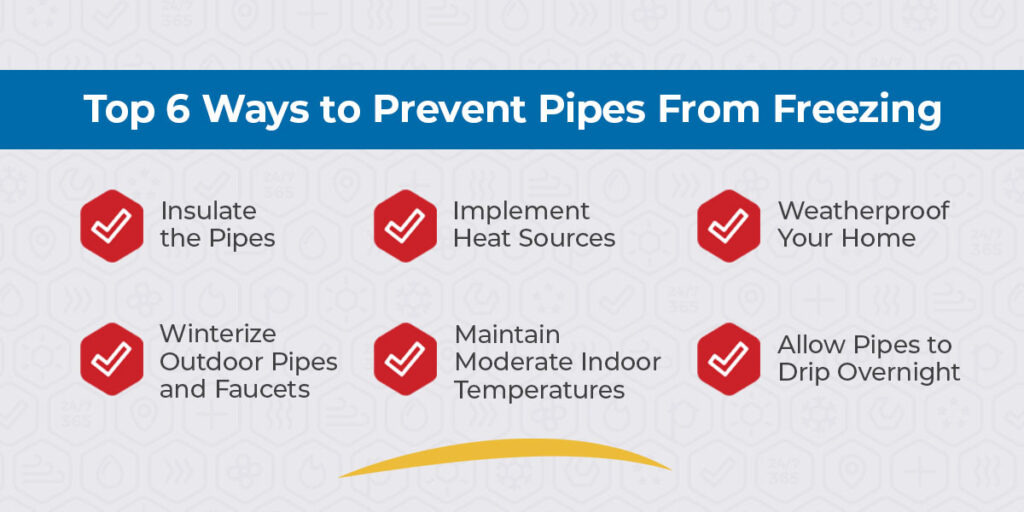
1. Insulate the Pipes
Insulated pipes are effective in combating freezing temperatures. The insulation material controls temperatures by limiting heat loss and protects them from the effects of the freeze-thaw cycle. Insulation also helps reduce utility bills over time by increasing the water temperature, reducing the need to maintain high settings on your hot water heater. Areas like attics and basements with little heat exposure are ideal for installing insulation.
Pipe sleeves are insulated rings around the pipes that protect them from external damage, corrosion and freezing. The sleeves are durable enough to withstand environmental factors and are used in complex pipework systems. Foam piping is an insulation material that offers the same protection and defense against freezing.
You can insulate exterior outlets and fixtures attached to internal pipes to promote heat retention. Some pipes are tricky to reach, making it nearly impossible to insulate them on your own. In these cases, a professional plumber can insulate hard-to-reach pipes with the necessary tools and expertise.
2. Implement Heat Sources
Additional measures to enhance insulation include heat sources like heat tape or heating cables. Heat tape is comprised of an electrical cable wrapped around the pipe. One end is plugged into an outlet for electricity to regulate the temperature as it drops below freezing, increasing the heat to control the pipe’s temperature.
In addition, heat lamps and space heaters can keep cold and damp areas dry and warm, especially in attics and crawl spaces that are normally damp. Keep in mind that these heating options should never be left unattended or running overnight.
3. Weatherproof Your Home
Weatherproofing your home before winter has numerous benefits. First, identify areas in your home that are prone to allowing cold air to enter. Seal any gaps and holes that can let in drafts. You can also weatherstrip windows and doors, including the garage door, to keep cold air away from plumbing components.
4. Winterize Outdoor Pipes and Faucets
Outdoor pipes and faucets are in direct contact with extreme cold, ice and snow and are more vulnerable to freezing. Hose bibs or exterior faucets and valves must be closed completely to prevent the main water line from freezing. Cover faucets with insulated sleeves as you would inside for extra protection.
You can also disconnect your hose from the faucet, roll up the hose and store it in your garage or basement for winter to prevent damage due to exposure.
5. Maintain Moderate Indoor Temperatures
Keeping your home warm in winter may be one of the best preventative measures to avoid frozen plumbing. Set the thermostat to consistently remain at a minimum of 55 degrees Fahrenheit throughout winter. Any dips below this temperature inside your home could result in your pipes freezing.
One trick is to keep your bathroom and kitchen cabinets open, allowing your heat to make more contact with your pipes. The warm air transfers through the walls so that pipes are less likely to freeze.
It’s also a good idea to use additional heat sources in spaces where temperatures tend to fluctuate and drop, including closets and staircases. Run space heaters periodically to regulate the temperature in these areas, but make sure to never leave a space heater unattended.
If you have a garage, it’s important to make sure the garage door stays closed to keep your heat inside and keep cold air away from your plumbing.
6. Allow Pipes to Drip Overnight
It may sound counterintuitive, but the best way to prevent pipes from freezing when temperatures plummet is to allow water to drip from your faucets at a very slow trickle. Taking this step is particularly important for faucets on outside walls to reduce pressure buildup and make sure your pipes won’t freeze during a particularly cold night.
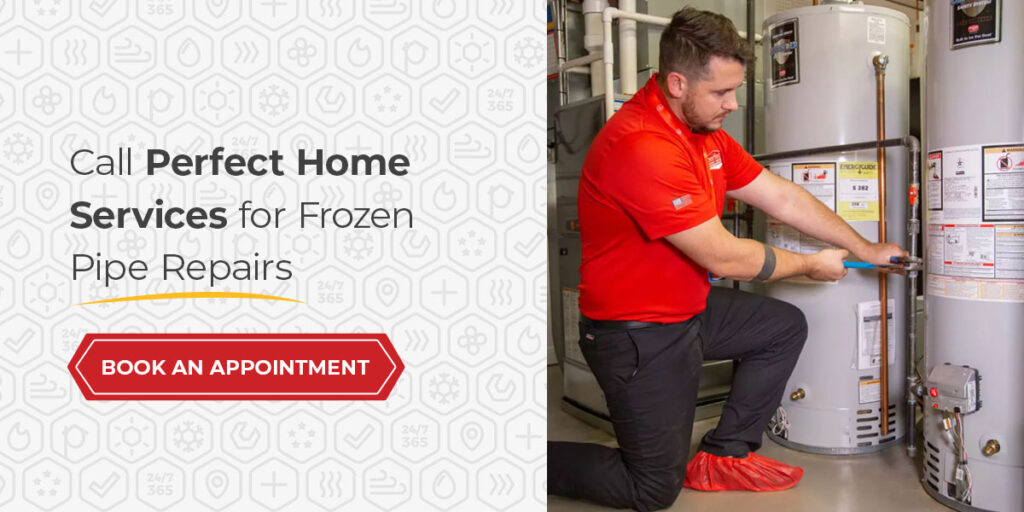
Call Perfect Home Services for Frozen Pipe Repairs
It’s recommended to monitor pipes for any signs of leaking and freezing on a regular basis. For example, you may hear strange noises coming from your plumbing or experience decreased water pressure. If you notice any of these signs, schedule pipe leak detection or leak repair services right away.
For fast and efficient frozen pipe repair service in the Chicago area, call Perfect Home Services and one of our qualified technicians will address your needs. We have over 30 years of experience tackling a variety of heating, cooling and plumbing challenges. No problem is too big or too small for us to fix.
Schedule a service online today to let us know how we can help. When it comes to your home, nothing less than perfect will do.
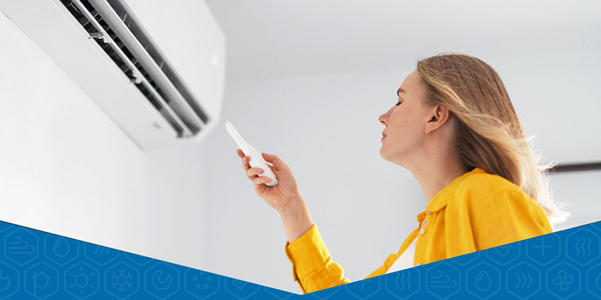
April 18, 2024
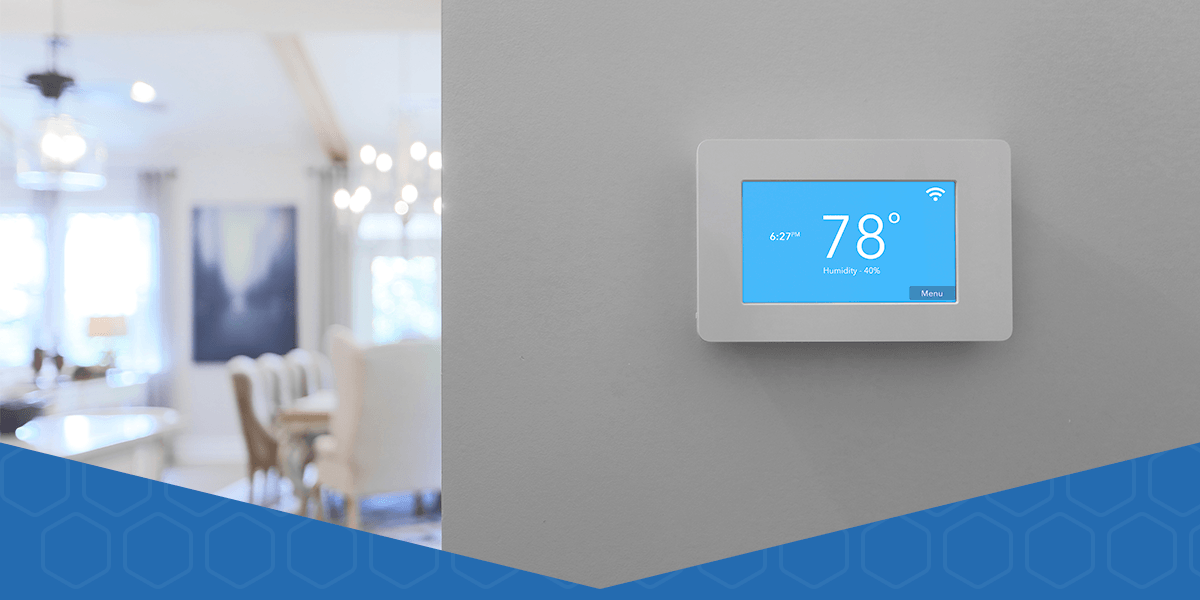
March 14, 2024

February 9, 2024

February 9, 2024
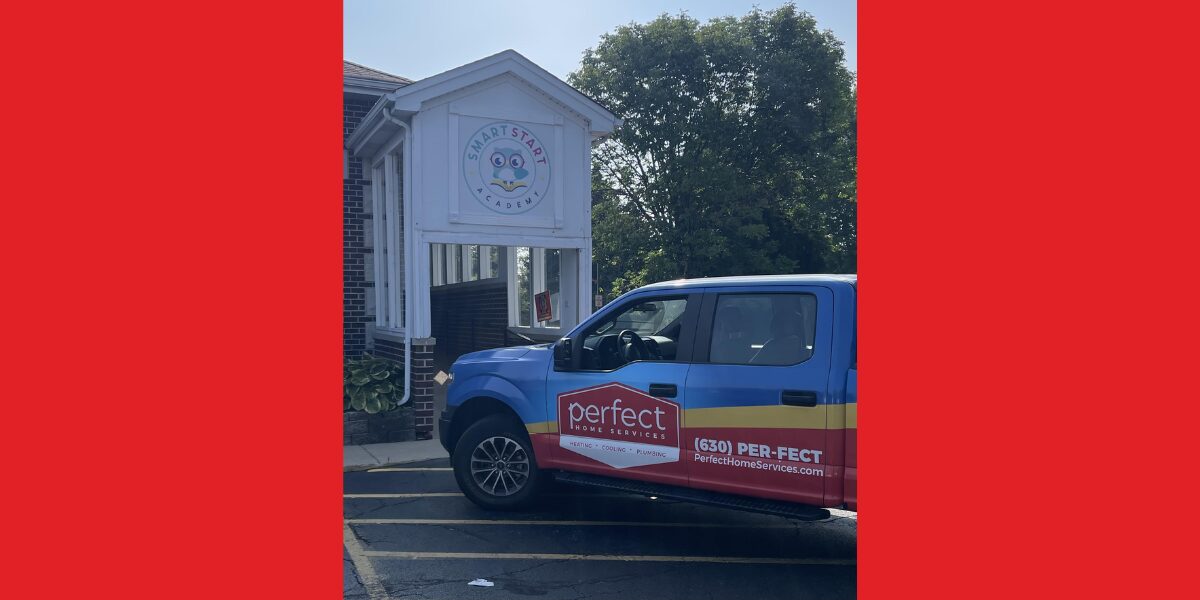
January 11, 2024
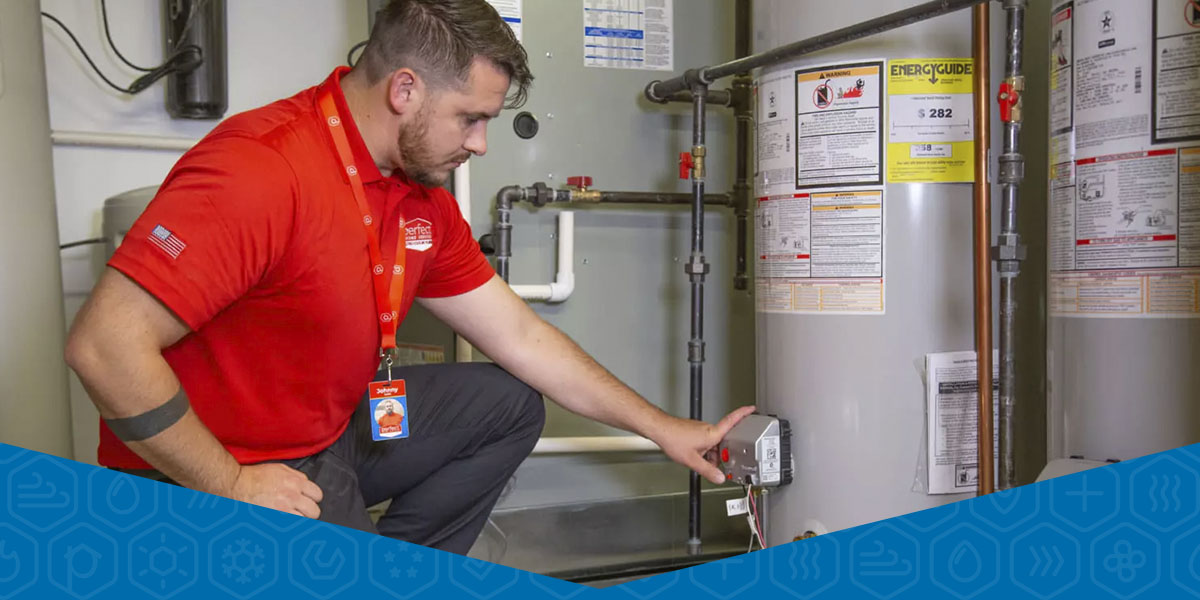
January 11, 2024
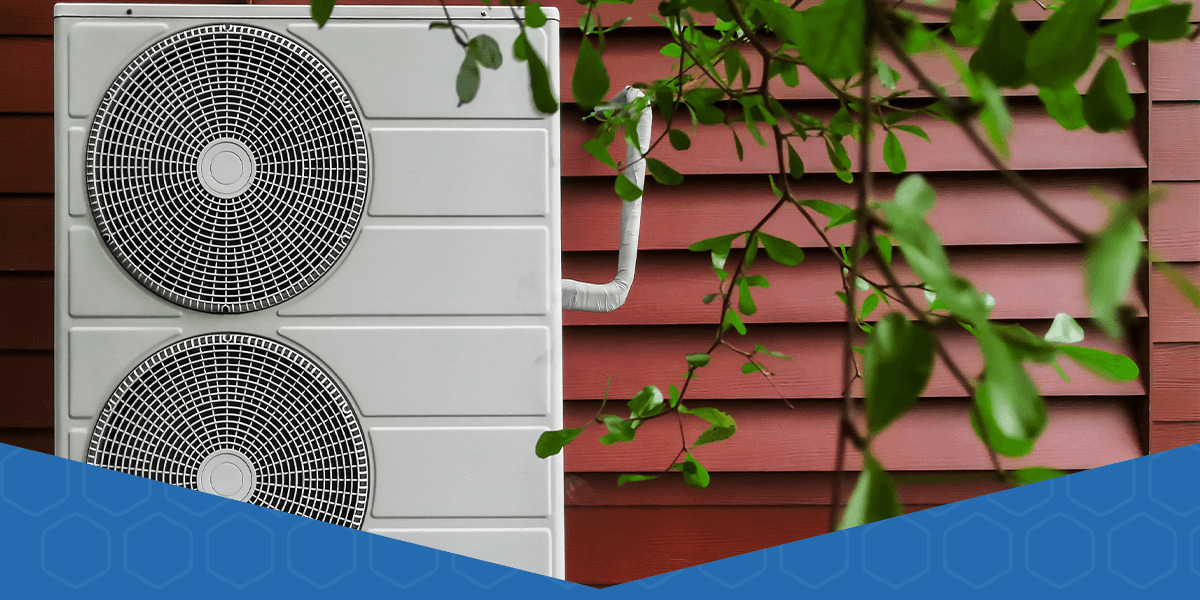
November 29, 2023


